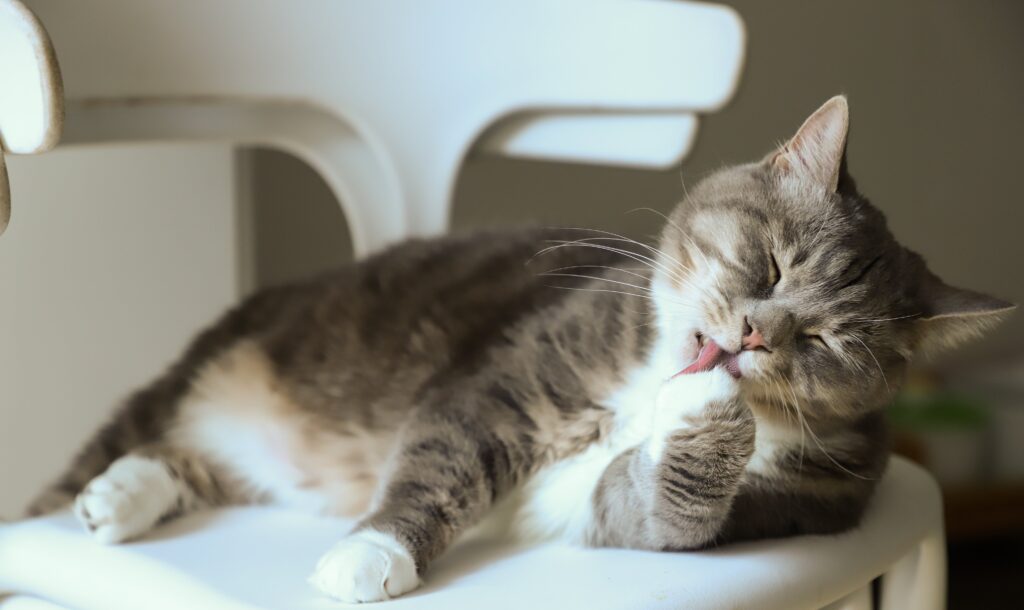Cat owners can finally breathe a sigh of relief.
In 2024, the government will allow up to two cats per flat, ending a 34-year ban on feline companions in public housing.
During these long years of cat prohibition, many cat lovers like myself were left scratching our heads, wondering why these furry pals couldn’t share our HDB homes.
Cats are often considered low-maintenance—they’re relatively easy to take care of, and they clean up after themselves.
According to HDB, cats can be difficult to keep as they sometimes shed fur, urinate and defecate in public spots, and make caterwauling sounds.
All of these issues, according to HDB, could create inconvenience for neighbours.
Since 1989, HDB flats have had a “no cats allowed” policy.

But let’s talk about the myths that have been driving this ban. From the misconception that cats are messy to the idea that they’re public safety threats, these stories have fueled the “no cats” rule for too long.
It’s time to debunk these myths and set the record straight. This is what it’s really like to have cats as companions and why it’s time to change how we see them in HDB flats.
Cats Are Actually Quiet
Excessive noise was a significant factor behind the decision to exclude cats from HDB flats, driven by the stereotype perpetuated in TV shows and cartoons that cats are incessant meowers.
However, according to the American Society for the Prevention of Cruelty to Animals, cats typically only meow to communicate their desires and needs.

Additionally, cats typically become vocal only to greet people, seek attention, request food, or signal a desire to be let in or out of a space.
It’s important to remember that even the most persistent cat meowing is considerably quieter than the quietest dog bark, debunking the notion that cats are noisier.
Depending on the cat’s personality, you might encounter other sounds, like objects being knocked off surfaces or a cat zooming around in bursts of energy. However, cats tend to be quieter overall in the grand scheme of things.
From a personal perspective, cats typically reserve their meows for familiar faces. When they’re with strangers, they tend to keep quiet as they are afraid.
If you live in an HDB block, have you ever been startled by loud meowing sounds echoing through the area? Chances are, not really.
And if you have, it’s likely those meows were coming from stray cats loitering beneath the void deck, looking for food or defending their turf when they spot other cats entering their territory.
They Clean Up After Themselves
Dogs demand a substantial amount of attention and care to meet their daily requirements.
These include regular walks, whether for exercise or bathroom breaks, frequent baths to prevent unpleasant odours, and consistent medical care involving medications and vet visits to safeguard them against various parasites like fleas, heartworms, tapeworms, roundworms, hookworms, ticks, and more.
This is especially true for dogs, as outdoor activities expose them to higher risks.
Conversely, cats tend to be considerably lower-maintenance, particularly if they’re strictly indoors.
Most cats take care of their own needs and use litter boxes for defecation and urination.
Contrary to common misconceptions among non-cat owners, their independence makes them relatively undemanding compared to their canine counterparts.

Have you ever noticed cats engaged in incessant self-licking? Well, that’s just a routine part of their natural behaviour.
Cats are self-groomers, and their saliva acts like a deodorant, reducing the need for regular baths.
Why Cats Lick After Themselves
There are several compelling reasons why cats engage in extensive self-grooming practices.
Studies indicate that cats lick themselves for various reasons, including regulating their body temperature, maintaining a clean and smooth coat by evenly distributing natural skin oils and reducing the likelihood of developing hairballs, among other motivations.
If you’ve observed a cat properly, you’ll notice that most of them take pride in their cleanliness.
In fact, experts assert that cats typically do not require regular baths, as their innate self-grooming behaviours are more than sufficient to uphold their hygiene, especially when they are strictly indoor pets.
With these facts, saying that cats are “dirty” can be quite a funny reason.
While cat owners are delighted at the opportunity to keep up to two cats in public housing legally, they hope that these feline companions will not be subjected to the same misconceptions regarding their hygiene or potential inconvenience to neighbours.




